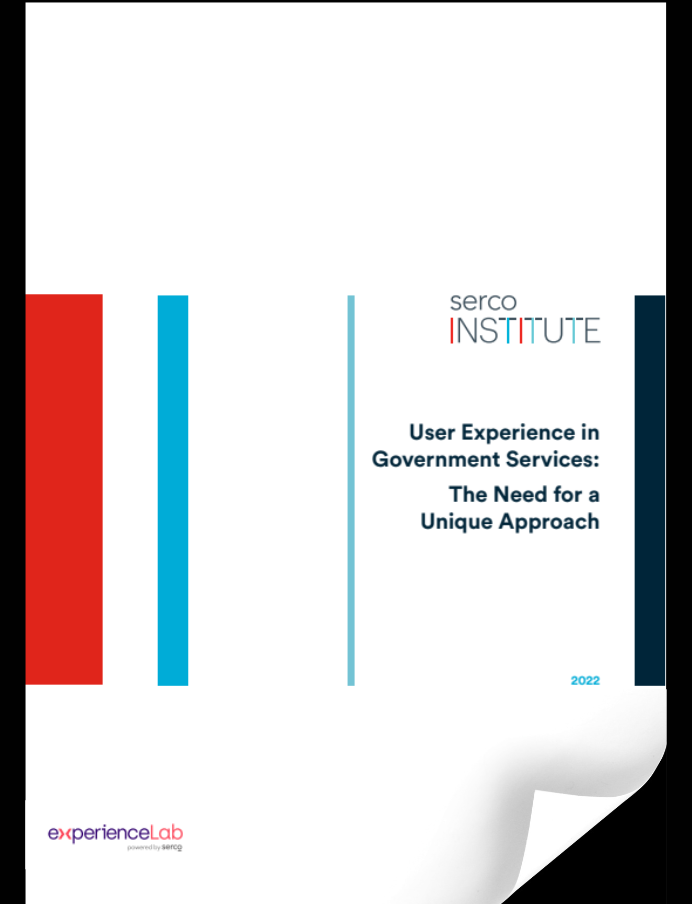
In the second of our twin reports on measuring user satisfaction – User Experience in Government Services: The Need for a Unique Approach – the Serco Institute and ExperienceLab explore the latest cutting-edge research and find that a new metric is needed to accurately measure people’s sentiments towards using government services.
We argue that existing metrics of measuring customer satisfaction neglect the uniquely broad remit of government services; to properly measure people’s feelings towards their experience of government services, a new approach is needed which takes into account both the unique nature of public services and the challenges of measuring a nebulous quality such as satisfaction.
This publication follows the release of a UAE-focused version of the report, and is aimed more at people interested in how Saudi Arabia approaches the question of measuring user satisfaction. The paper, however, takes a global focus, examining a series of case studies in the Middle East, North America, Europe and Australia and exploring how countries all over the world are tackling the question of measuring user satisfaction.
Saudi Arabia is highlighted as having demonstrated a world-beating ambition to measure how service users feel about government services: the National Center of Performance Management (Adaa) is dedicated to drive up performance and efficiency among Saudi public entities. Furthermore, the research notes that the Saudi Government launched the Watani smartphone app in 2019, allowing users to rate public services and provide feedback on 80,000 services offered in the Kingdom.
The Institute outlines, however, that some organisations and governments globally still seek to deploy metrics developed for use in the private sector. These are found to be ill-suited to adequately measuring satisfaction with government services for multiple reasons, including:
As such, the Institute sets out several key considerations which will need to go into designing a new Government Services Satisfaction Index, split into two categories:
The Institute stops short of designing a new Government Services Satisfaction Index. However, by identifying the problems with existing commercial methods of measuring satisfaction and highlighting the unique aspects of government services, the Institute hopes to lay the foundations for a new metric or index, designed for and aimed specifically at those who use government services.
Read the full report here:
